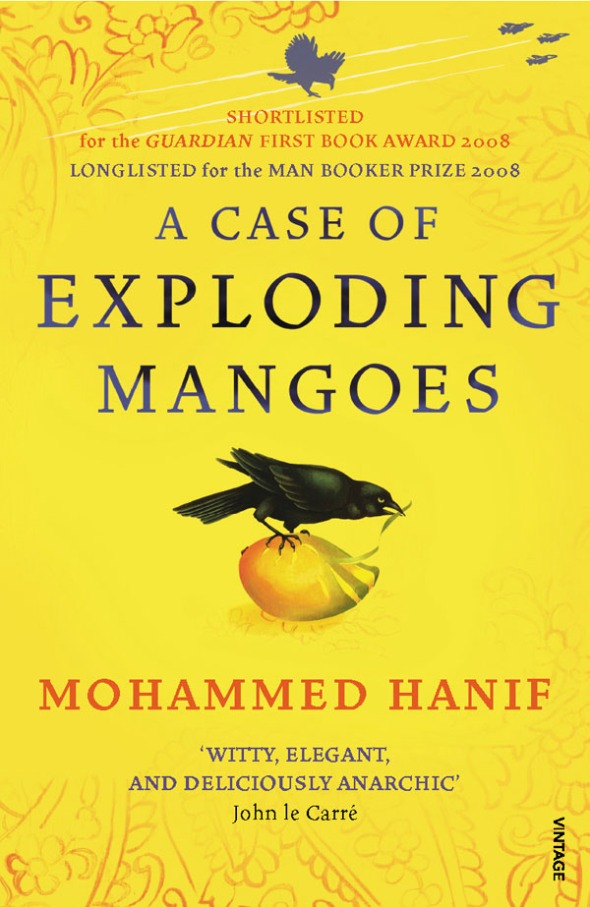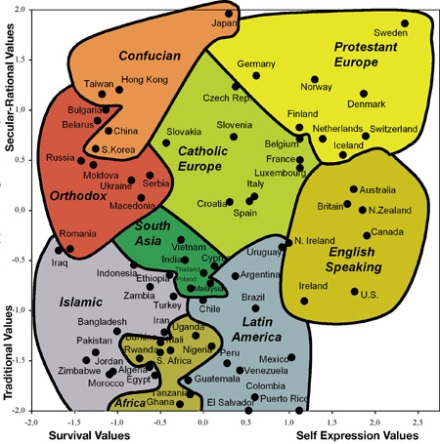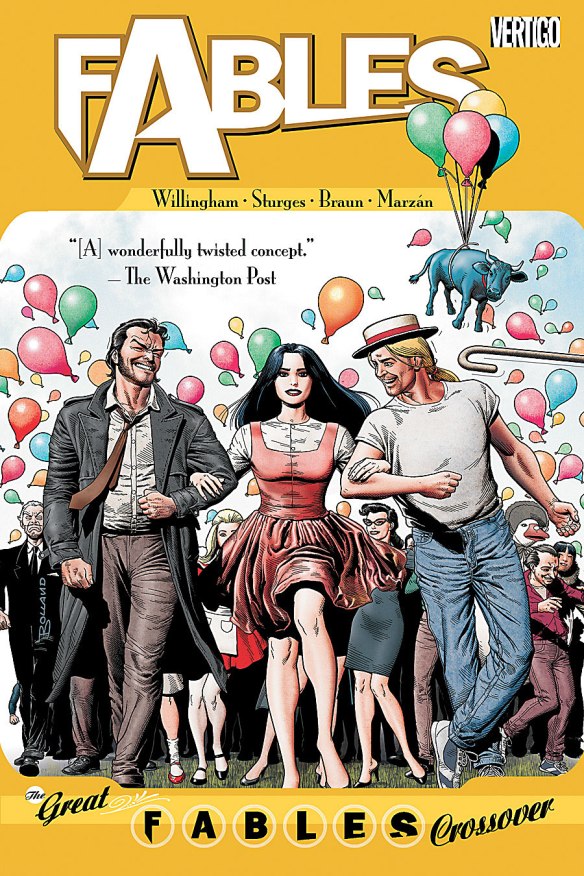This post on HuffPo would be far better as a blog meme than as a prescription, so here we go. In less than a year I will be handily past the halfway point of my 20s, so it’s a nice time to check.
1. Jump off something.
Whether it be a tree by the river next to your childhood home or bungee jumping from the Victoria Falls Bridge in Zimbabwe. Take the leap.
Status: Sure, I’ve jumped off trees and into rivers. I am hoping to go either sky diving or bungee jumping over the next year, though, so I’ll wait to properly tick this one off.
2. See one of the Seven Wonders of the World.

English: Great Wall, China (Photo credit: Wikipedia)
This is a tough one, because at 30, well, you still have the bank account of a 29-year-old. The good news here is that it doesn’t necessarily have to be one of the originals — go for the Golden Gate Bridge (modern world), the Grand Canyon (natural wonder), or the Mayan ruins in the Yucatán Peninsula (USA Today new wonder), an affordable flight from most U.S. cities.
Status: This is very ambiguous but at least some lists include the Taj Mahal, so I’ll tick this off as well. I really want to see the Great Wall of China soon.
3. Party in Las Vegas.
No person should exit their 20s without doing something they regret in Sin City. The place was basically built for us.
Status: Not yet! But I’ll probably swing by when I go to Houston in July.
4. Take a vacation that isn’t Spring Break.
You had your opportunity to drink beer upside down and insist you don’t need sunscreen while in college. Besides, you don’t remember anything from those trips anyway.
Status: This is weird, right? Who hasn’t?
5. Attend at least one large celebration.
Mardi Gras, Full Moon Party, Easter Mass — I don’t care, as long as you have to throw elbows to get to the bar, or the alter.
Status: Easter Mass yes. Random public New Year parties and India winning the World Cup (Cricket), yes. Full Moon party, not yet.
6. Hit up a nude beach.
If for no other reason, use the time to look around and remind yourself of how young you actually are.
Status: Hmm…..
7. Spend several days with only what will fit in a backpack.
If you can brush your teeth with river water and comb your hair with a tree branch, you can most certainly figure out how to stop turning all of your white clothes pink.
Status: Sure, traveling around and bumming off friends. Barely counts, though. Not sure I’m particularly interested.
8. Swim in the ocean.
This is a must.
Status: Totally a must.
9. Sleep somewhere where you have to light a fire to stay warm.
Kudos if you can do so without matches.
Status: Camping in the Himalayan foothills. We did use matches and propane lighters and all that, though.
10. Do some sort of adrenaline sport.
Raft a Class five rapid; mountain bike Whistler in the summer; surf a wave larger than your torso — meaning: do something that scares you.
Status: Definitely a to-do. I’ve gone rafting, I’ve biked in the mountains, but both in very safe, tame areas.
11. Hit up one of the Caribbean islands.
There are thousands to choose from. You’ll most likely visit more than one in your lifetime, get a good jump on it in your 20s.
Status: This is probably more of a must-do if you’re American, right? I don’t think I’ll set a deadline of 30 on this.
12. Take one ultimate road trip.
It can be with buddies, it can be camping, it can be on Route 66, Route 1, or the Blue Ridge Parkway. Double points if you have a reliable car to get there.
Status: There have been many road trips but none of them over 24 hours of driving, so no, and I am not a major fan of road trips anyway.
13. Go somewhere alone.
At 30 you should be confident and worldly enough to wake up in a foreign country and know how to get yourself home.
Status: Done, couple of times.
14. Take a train somewhere.
There are no hidden innuendos here. It’s just nice to have the patience and maturity to sit still and watch the world go by.
Status: Probably more unusual for Americans, again. Practically all middle class Indians have done this at some point.
15. Go to a music festival.
Hit up one of the big ones (Coachella, Bonnaroo, Glastonbury) and spend the weekend listening to good music, dancing, and having random song lyrics make you contemplate what you’re doing with your life.
Status: I’ve done the usual campus fests, NH7 (as big as it usually gets in India) and Edinburgh Fringe so I think I can tick this off, even if I haven’t hit the “big ones” yet.
16. Have one iconic Americana experience.
Think Dollywood, Graceland, and Branson.
Status: Meh.
17. Go to at least one of the Smithsonian museums.
The world’s “largest museum and research complex” includes 19 museums, galleries, and parks — the majority of which are free.
Status: Done, Air and Space, which was awesome, although this was before my 20s.
18. Summit a mountain.
I’m not talking Everest, but you should by now have stood on a mountain peak high enough that you’re worried about getting back down.
Status: It was small and I was only worried about getting back because we had spent too much time swimming in the waterfall basin and it was already getting dark. Also not even a proper summit. Will have to wait.
19. Be able to name your top five dream vacations.

Northern lights (Photo credit: Moyan_Brenn)
It’s OK if one of them is “home.”
Status: Maldives/Carribbeans, Macchu Picchu and the Andean country, the “overall” European backpacking trip, Norway for the Northern Lights, Spain/the Catalan area (this last inspired in large part by Vicky Christina Barcelona).
20. See a game at a classic ballpark.
If Babe Ruth, Mickey Mantle, or Joe Dimaggio hasn’t played in it, it doesn’t count.
Status: Meh, and I cannot stress the meh enough.
21. Visit a neighbor to our north or south.
There’s a hall pass to be had for out of the continent, but by 30 you should have crossed at least one landlocked border.
Status: Ironically, I have actually visited Canada, but not yet been to China or any of our actual neighbours (to be fair Pakistan/Bangladesh/Myanmar are not likely to be easy, but Bhutan has been on the list for some time and will happen soon.)
22. Do something so adventurous that it requires a doctor’s visit.
Whether it requires a series of preventative vaccines before or a cast/splint/cream after, the goal here is that the adventure at hand was so extreme that you need to seek the advice of a trained professional.
Status: Hmm? Let’s see. I need preventive vaccines and need to learn how to kick out the emergency exit windows on an underwater helicopter for my regular job, but I’ve never been into anything quite that extreme.
23. Save pennies to go somewhere you really want to go.
It doesn’t have to be extravagant, but you should have to work for it.
Status: In some sense I have to work for all of it, and in some sense I don’t, so this one doesn’t make much sense.
24. Go to New York City.
Eat a slice of pizza, stand in the middle of Times Square, and ride the Subway to somewhere — anywhere. This trip is made even better if you can’t afford a decent hotel and book a hostel instead.
Status: Done, done and done. You avoid the trouble of a hotel by having a really huge extended family who are happy to put you up.
25. Sleep under the stars.
In your backyard, in a tent on safari in Kenya, or in the camping pit of an organized event — be extra proud if your experience was made significantly more successful by a can of bug spray.
Status: In a tent, yes, but I note that this is technically not under the stars.
26. Eat an iconic city meal.
Options include a cheesesteak in Philly, clam chowder in Boston, deep-dish pizza in Chicago, crabs in Baltimore, gumbo in New Orleans, BBQ in Memphis, and a beer in Milwaukee.

Status: Clam chowder in Boston (I could really use some right now!), haggis in Edinburgh…. fish and chips in London, pepperoni pizza in new York, fish curry in Goa, vada pav in Mumbai, chicken rice in Singapore, fondue in Zurich? I guess some of these might be a stretch.
27. Know all of the best places to take tourists in your home city.
Philly’s “Love” Park may be just a point of congestion to locals, but trust me, your mother will love it.
Status: Well, some.
28. Have one close encounter with a wild animal.
If this means you don a wetsuit and slip into a tank with dolphins, so be it. But let’s aim for something in the wild if at all possible.
Status: I have seen a jaguar climb a tree in less than a second and it was AWESOME, but I’m definitely getting no closer than that. Maybe the dolphin tank sometime. Also we had deer all around our campus which we necessarily dealt with all the time. They are not domesticated, but you can hardly call them wild, either.
29. Do something you can’t tell your parents about.
Go ahead and make some bad decisions.
Status: Lots of won’ts, probably not many can’ts, but ONE shouldn’t be a stretch at all 🙂 .
30. Know a dance well enough that you could keep up with the locals.
Tango with Argentinians, Salsa with Cubans, Kathak in India, do a jig with the Irish, or line dance in Kansas.
Status: Alas, I know none, and this is definitely on the list. Kathak is not quite like salsa or tango, for the record, in that it is a performance, not an activity
Verdict: So many of these are really ambiguous but even so, of the ones I care about I think I’ve done a good two thirds, which is very reassuring!









